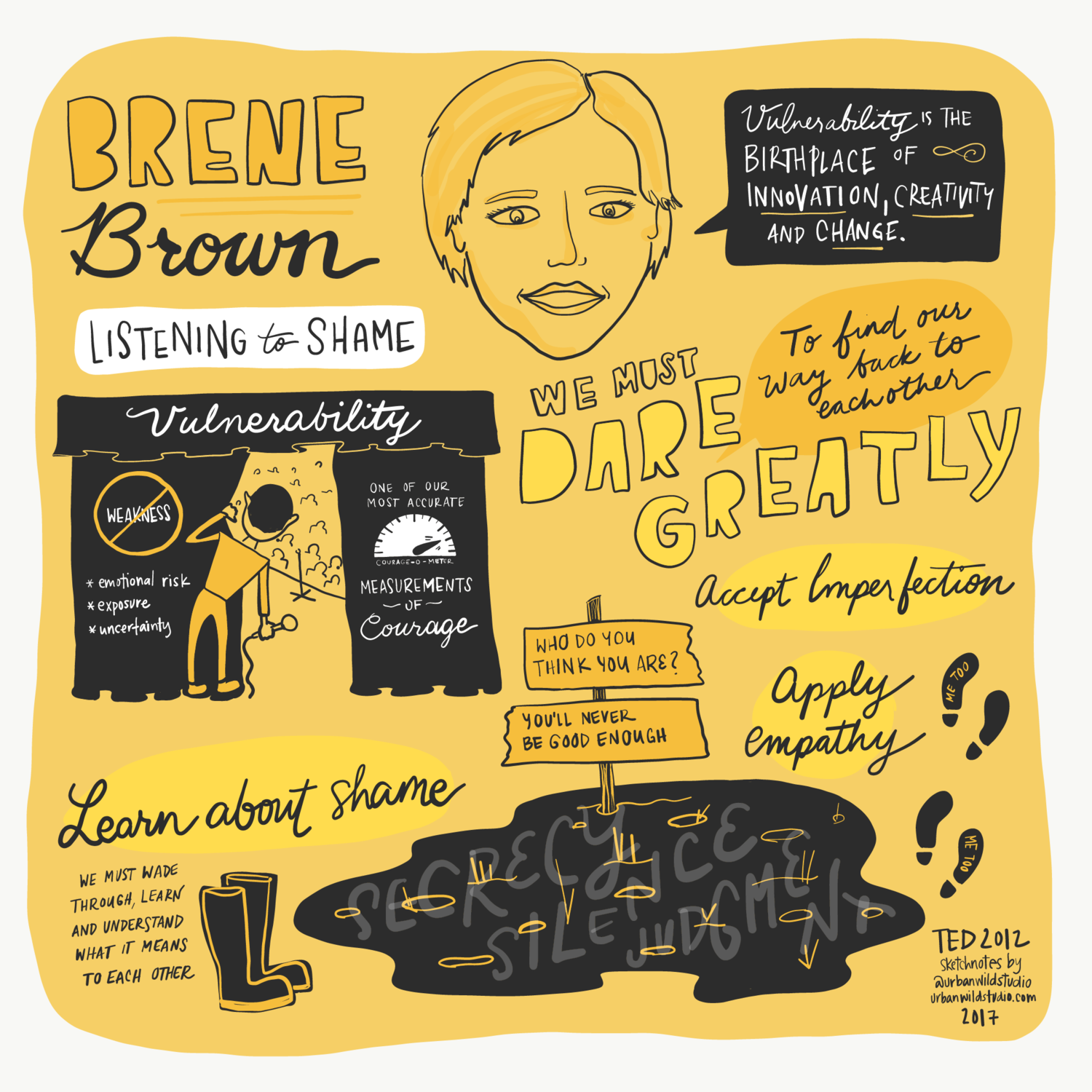Vul·ner·a·bil·i·ty (noun)
/ˌvəln(ə)rəˈbilədē/ the quality or state of being exposed to the possibility of being attacked or harmed, either physically or emotionally.
Shame. That thing that creeps in when you least expect it. The unspoken epidemic.
Brené Brown, American researcher, professor, lecturer, and researcher of shame and vulnerability discusses the power of vulnerability in her TedEx. When Brown was asked to speak to a cohort of college-aged business students, the
professors asked her to reject her years of research about vulnerability and shame. Instead, Brown was asked to speak about “innovation, creativity, and change”. She expressed that “vulnerability is the birthplace of innovation, creativity, and change.”
Brown continues, “To create is to make something that has never existed before. There’s nothing more vulnerable than that. Adaptability to change is all about vulnerability.” Failure is an inherent part of life. Numerous companies, from 409 to WD-40, have been faced with failure time and time again until they perfected their product. But like so many others, our scholars often measure themselves based on their mistakes. It is our job to remind them that just because they did a bad thing, does not mean they are bad. Our worth and value is not defined by the poor grade we received on our physics test or our mediocre performance in last night’s basketball game. Fail forward and have courage. There is no shame in asking for help. It takes a village, people.
As a first-year teacher and lucky new addition to the Elmont family, I have grappled with my fair share of vulnerability over the past few months. Walking into each job interview, choking on the frog in my throat, wondering if anyone will call my bluff. Am I good enough? Am I worthy of being here? Will I fit in? Do I belong here? These are the thoughts that raced through my mind as my eyes darted around the commotion of the main office. On job interviews, you walk a tightrope of trying to sell yourself and convince them why you would be an asset to their staff, without sounding arrogant and pompous. But really, out of the hundreds of experienced applicants, why would they choose me? Who do I think I am?
After all, all we want is for our students to not fear vulnerability. To not be afraid to ask for help. To not allow their mistakes to define them. We can best do this by reminding them of our own journeys. Being transparent about our struggles and shortcomings. We are teachers, but we are humans first. We, too, are unfinished products. We, too, are imperfect entities. Every other Monday, we sit across from each other in utmost vulnerability. We share our thoughts and feelings about uncomfortable topics. We learn from each others’ lived experiences and apply it to the classroom. It is our vulnerability and courage that is the birthplace of change.
As Teddy Roosevelt once said, “It is not the critic who counts; not the man who points out how the strong man stumbles, or where the doer of deeds could have done them better. The credit belongs to the man who is actually in the arena, whose face is marred by dust and sweat and blood; who strives valiantly; who errs, who comes short again and again, because there is no effort without error and shortcoming; but who does actually strive to do the deeds; who knows great enthusiasms, the great devotions; who spends himself in a worthy cause; who at the best knows in the end the triumph of high achievement, and who at the worst, if he fails, at least fails while daring greatly, so that his place shall never be with those cold and timid souls who neither know victory nor defeat.”
Life is about daring greatly. Don’t be afraid to be the man in the arena.
